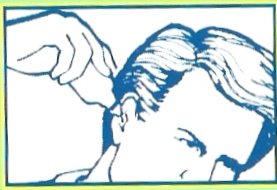Ten years ago, I was a reporter at Minnesota Public Radio in Rochester. The Huisentruit story was the first piece I ever produced for National Public Radio. I’ve done probably 30 since then and hundreds of local stories, and it’s still the only story I’ve ever done that still gives me chills.
I met Jodi Huisentruit a couple of times, though not actually when I was working in Rochester. We traded contact information on sources when I worked down the road from Mason City, in Decorah, Iowa. If I remember correctly, she had moved up to Mason City from Cedar Rapids about the same time I moved up from Cedar Rapids, because I also remember watching her there. The 20/20 story included a piece of tape of Jodi Huisentruit reporting in front of a farm park in Decorah. My first story in Decorah was about that farm.
The 20/20 piece – like most of the national coverage of the case – got the story both right and wrong. To portray it as a small town’s loss of innocence oversimplifies it. I had a tussle with my editor over just that point. He wanted to hear that people were locking their doors, looking over their shoulders, and worrying that life in Mason City would never be the same. My reporting told me that only the last point was really on target. I was 26 and it was my first NPR piece, so I lost the argument. In fact, this is how my story ended:
Investigators have called off the searches of nearby farmland in the Winnebago River. They're now focusing on who Huisentruit may have seen or spoken with in the days before her apparent abduction, but police, community members, and reporters, all say that no matter how the case ends, Mason City will be changed. Front doors will be locked, people will look over their shoulders, and the early morning news will feel just a bit different. For National Public Radio, this is Mitch Teich reporting from Rochester, Minnesota.The point was that most people in Mason City were no more worried that Jodi’s fate would happen to them than people in New York would have been if Dan Rather was kidnapped off the street. The likelihood was (and still is) that Jodi Huisentruit met with foul play because she was a celebrity in a place that had few celebrities. In Mason City, and Rochester, and Flagstaff, Arizona, you can run into the local news anchor at Perkins. And that intimacy is both what makes living in places like Mason City special, and makes the disappearance of someone people know from television – and from the laundromat – all that much more difficult to take.
And as someone who’s worked in the media in small cities in Iowa and Minnesota and New York and Arizona, that’s why the goose bumps still come. Rochester, Minnesota – more than anywhere else I’ve worked – was filled with bright reporters from every media, who all genuinely enjoyed hanging out together. Maybe it was because, at the time, we all wanted to be somewhere else, but it was remarkable that so many people from TV, radio, and print welcomed each other’s company at settings besides press conferences.
I interviewed a few of the women I knew in TV for the NPR piece I did ten years ago. And the vulnerability they were suddenly struck with in late June 1995 hangs with me today. It’s a depressing fact of media life that women in the broadcast media are subject to far more of the crap that comes with celebrity than men. It was the reporters who were looking over their shoulders.
Which is not to say that men are immune. My first paying job in radio was a one-night a week stint as the overnight DJ at a radio station in Cedar Rapids. I was to go on Thursday night at 11:00 pm. I trained in with the guy that did the overnight shift on Wednesday evening. His last piece of advice came at 5:30 the next morning. “People will call and offer to stop by and bring you food,” he said. “Whatever you do, don’t let them in.” The first food offer came the next night.
It’s probably worth noting at this point that 10 years later, Jodi Huisentruit’s disappearance has yet to be solved. The Mason City Police Department is still actively investigating the case. They’re at (641) 421-3636.




1 comment:
I question if Jodi was abducted by someone from her home town not from where she worked, town. Naming Cedar Rapids.
It would be the first place I would investigate.
Post a Comment